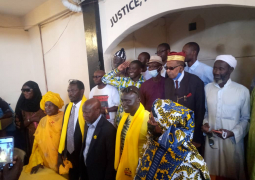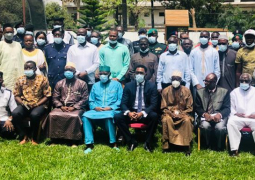
In an interview with The Point, National Assembly Member for Banjul North, Modou Lamin B. Bah, described the dire situation residents face as water filled their homes and bedrooms. The primary cause, he explained, is the malfunctioning sewage system on Tobacco Road, which mixed with rainwater and inundated the houses.
Bah recounted that two years ago, he managed to secure small water pumping mechanisms to address a similar flooding incident. However, he acknowledged that these pumps are insufficient for the current crisis. "The first thing we did was use the pumps, but they are not enough," he stated.
Calling for immediate government action, Bah stressed the importance of protecting the residents of Banjul North, who he believes deserve better living conditions. "With all the billions of Dalasis spent on the Banjul Rehabilitation Project, we did not expect this to happen. The project was supposed to address sewage and drainage issues, but despite being 98% complete, it has failed to meet its objectives."
Bah expressed concern over the daily struggles of residents who, instead of focusing on providing for their families, are forced to spend their time pumping water out of their homes. He identified the main cause of the flash floods as the blockage in the sewage system and the lack of functioning machinery. The National Water and Electricity Authority (NAWEC) has attributed the problem to the absence of sewage pumping trucks, a responsibility Bah insists should have been addressed by the Banjul Rehabilitation Project.
"The health implications are severe," Bah warned. "Living in waterlogged conditions poses serious health risks, leading to potential hazards that could cost the government even more to resolve."
He concluded by urging the government to provide the necessary equipment to the Banjul sewage station to help clear the affected homes and prevent further damage.





